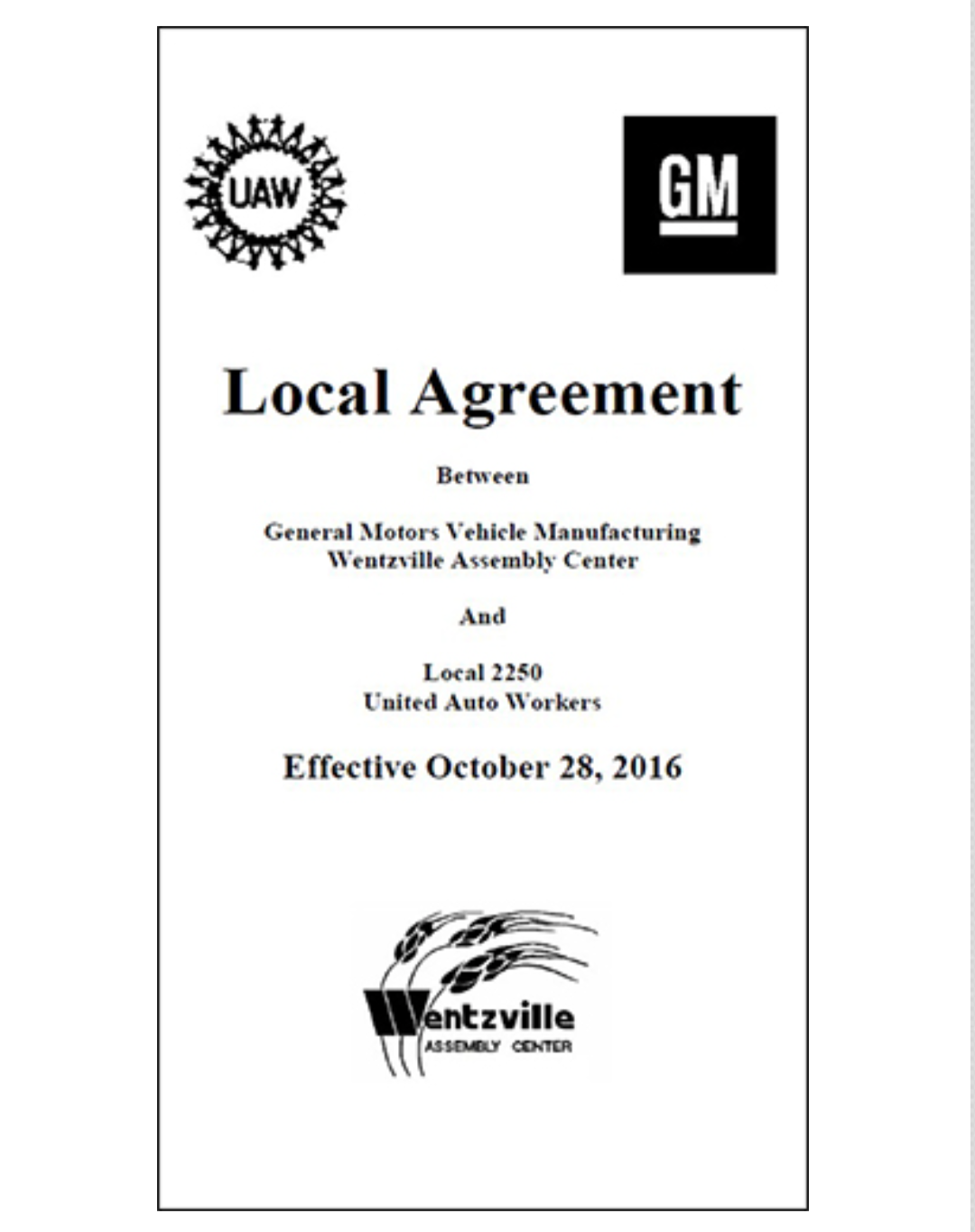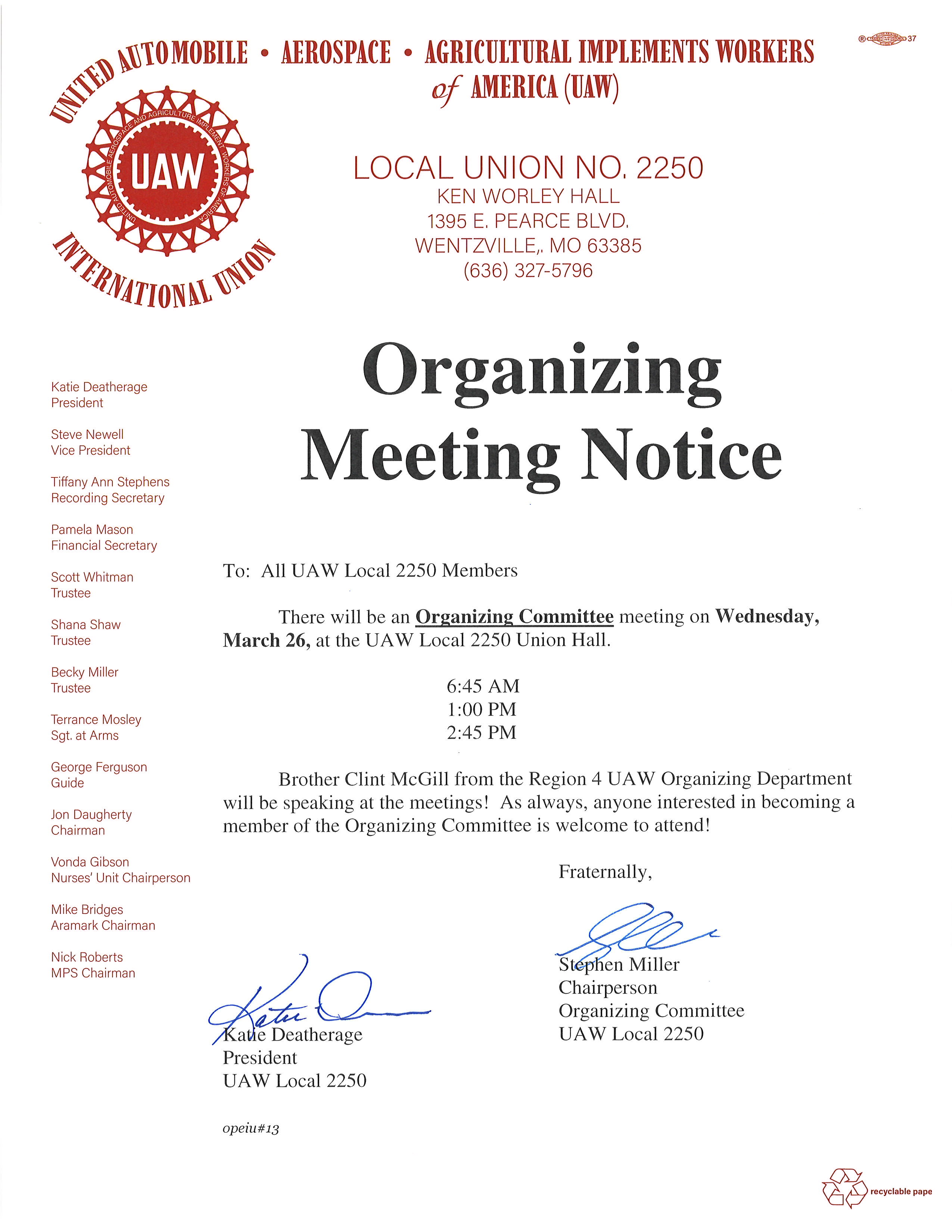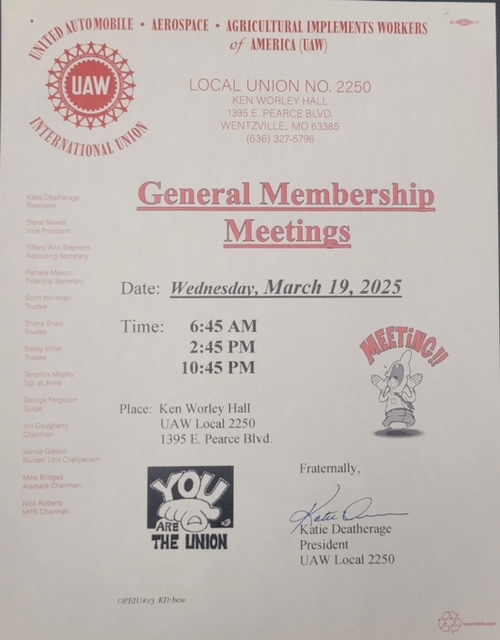-
You Can Carry Your UAW/GM Wentzville Local Agreement 24-7-365 - April 1, 2025
-
Did Your Bid Win? - March 31, 2025
-
Shawn Fain, Trump, and Tariffs: What’s The Truth? - March 30, 2025
-
Guest Opinion: Lawmakers Shouldn’t Undermine Missouri Voters - March 29, 2025
-
April Showers Bring More Activities! - March 28, 2025
-
The 2025 Missouri AFL-CIO Joint Legislative Report - March 27, 2025
-
P2: Phased Retirement For Tier 2/Progressive Members – A New Trend? - March 23, 2025
-
Sunday Guest Opinion: Education Department Cuts Damage The Working Class - March 22, 2025
-
Newsline #13: New Members, Paid Leave, and The State Capitol! - March 21, 2025
-
Check Out The Organizing Committee! - March 21, 2025
Can Anything Good Come From A Layoff? YES.
Recessions and Layoffs can be life-changing events. But, are all these changes bad? Business Insider has the details of a major positive in The Upside of Recessions…
There’s a reason governments spend so many taxpayer dollars digging their economies out of recessions. Families lose their homes. Children go malnourished. New grads spend years struggling to get their careers back on track, forgoing marriage and kids and homeownership. But a growing body of research suggests that recessions are good for at least one thing: longevity. Puzzlingly, it appears that economic downturns actually extend people’s lives.
Why would layoffs help people live longer?
The answer was pollution. Counties that experienced the biggest job losses in the Great Recession, the economists found, also saw the largest declines in air pollution, as measured by levels of the fine particulate matter PM2.5. It makes sense: During recessions, fewer people drive to work. Factories and offices slow down, and people cut back on their own energy use to save money. All that reduced activity leads to cleaner air. That would explain why workers without a college degree enjoyed the biggest drops in mortality: People with low-wage jobs tend to live in neighborhoods with more environmental toxins. It would also explain why the recession reduced mortality from heart disease, suicide, and car crashes

(graphic via freeimages.com)



















